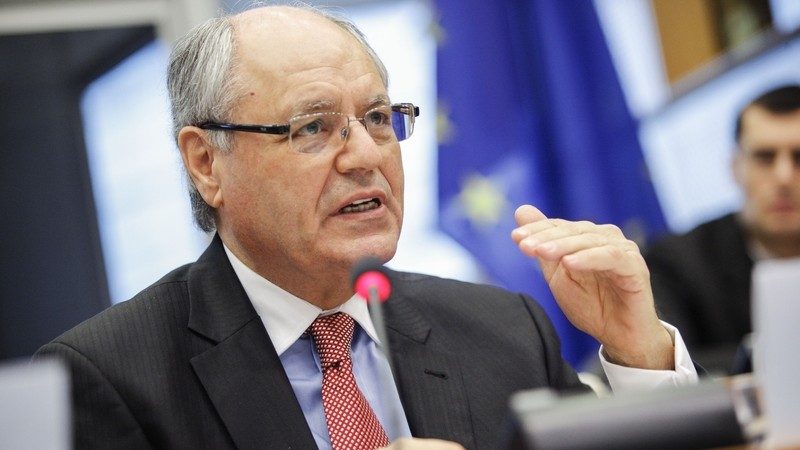According to Finance Minister Edward Scicluna, Malta’s financial services aren’t being damaged by shady practices and the complete failure to investigate and prosecute them.
No, the damage is caused by these annoying people who keep talking about it — especially in front of foreigners.
If only they’d shut up about it, he seems to think, no one would notice and everything would be fine.
I’ve come to think of this strategy as The Maltese Look-Away.
I first encountered it while driving. Specifically, when entering that big Qormi roundabout.
Drivers who sailed through the chaos of this major junction were all doing the same thing.
They assumed a mask that was dead of emotion, stared straight ahead, and brazenly cut others off. People swore and honked their horns, of course, but the driver was impervious. None of that anger stuck to him.
This is much more sophisticated than just covering your own eyes and chanting, “You can’t see me!” The driver using The Maltese Look-Away is also evading the judgment of others.
As long as he can hover in an indeterminate state between doing something wrong and actually being busted for it, he’s innocent. Call it the Mizzi-Schembri Paradox.
The Maltese Look-Away is a method of avoiding responsibility for one’s actions.
Unfortunately, this strategy isn’t working very well for Scicluna on the international stage.
When the government’s Department of Information (DOI) responds to documented allegations of serious corruption not with an action plan, but with a statement that says, “This is being done by individuals who are obsessed with maliciously scoring points on the local political scene,” it reads like an episode of the Twilight Zone.
According to the DOI, reports of corruption at the highest levels of power in Malta are, “baseless and highly damaging, fabricated allegations with the clear intent of discrediting the Maltese financial services industry”.
I hate to be the one to say it, but the Maltese financial services industry is doing a pretty good job of discrediting itself. Statements like this from the government are just making it worse.
Please allow me to translate Scicluna’s argument into even clearer terms.
The dog has just made a disgusting mess on the carpet. It’s right there in the middle of the room, and guests are about to arrive.
The obvious solution is to kick a carpet over it and pretend it isn’t there. Don’t clean it up — why would you want to do that? As long as everyone pretends it doesn’t exist, no one will notice. Whatever you do, don’t blame the dog. Blame the person who points out the turd. If he hadn’t said anything, none of the other guests would have noticed the stench.
Blaming journalists who report corruption runs on the same logic. So does blaming MEPs who refuse to look away.
It’s astonishing — and more than a little embarrassing — to watch the Minister of Finance covering his eyes and shouting “You can’t see me!” when everyone can in fact see him there with his eyes covered, yanking on the carpet.
And it’s deeply disturbing to hear him tell US news broadcaster 60 Minutes, “It looks bad, but it’s not.”
After a while, such denials begin to sound very strange.
Foreign governments were alarmed at first. They wondered why the Finance Minister of Malta couldn’t see what they were all seeing so clearly.
But as the denials piled up in the face of proof after proof — stretching across a range of issues, from money laundering through gaming companies to lax banking supervision, to tuna laundering and the 17 Black power station scandal — the insistence of government spokesmen like Scicluna that there isn’t a problem, and that in fact it’s really just a political conspiracy against Malta, begin to sound very hollow.
The fact that they think there’s no problem is the greatest concern of all.
It stops looking like a case of one confused person who just doesn’t want to believe the bad news.
Instead, Scicluna and his colleagues are giving a very strong impression that officials in Malta are refusing to take action on these scandals because they’re so deeply implicated in them.












